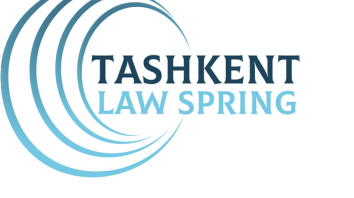06 January 2023
The Minister of Industry and Infrastructural Development of the Republic of Kazakhstan has banned the export of certain types of timber from the country for the next 6 months since 9.12.2022.
This was done in order to develop the wood industry and to prevent illegal re-exportation of timber from territory of the Republic of Kazakhstan.
Timber which are prohibited for export:
According Commodity Nomenclature of foreign economic activity of the Eurasian Economic Union are 4401, 4403, 4404, 4406, 4407, with 1 exception: 4406910000
4401 - fuel wood in the form of logs, logs, branches, bundles of brushwood or in similar forms; wood in the form of chips or shavings; sawdust and wood waste and scrap, non-agglomerated or agglomerated in the form of logs, briquettes, pellets or in similar forms;
4403 - untreated timber, with bark or sapwood removed or not removed, or roughly edged or not edged;
4404 - cooperage wood; split logs; piles, stakes and poles made of wood, pointed, but not sawn lengthwise; timber, roughly hewn, but not turned, bent or otherwise processed, used for the production of canes, umbrellas, tool handles or similar products; wood chips and similar wood
4406 - wooden sleepers for railway or tram tracks (with the exception of the EAEU HS code 4406910000 "wooden sleepers made of softwood for railway or tram tracks, impregnated").
4407 - timber obtained by sawing or splitting along, planing or peeling, processed or not processed by planing, grinding, having or not having end joints, with a thickness of more than 6 mm
The Ministry of Industry and Infrastructure Development of the Republic of Kazakhstan simplifies procedures for obtaining licenses in the field of subsoil use.
From November 1, 2022 on a single platform of subsoil users minerals.gov.kz a module for issuing licenses has been launched in pilot mode, the functionality for sending electronic notifications has been implemented, the process of conducting electronic auctions for exploration sites has been automated, a mechanism for paying a subscription bonus by the auction winner before issuing a license has been introduced for the first time. In parallel, work is underway to automate the auction for "mining" sites. It is planned to complete it in the 1st quarter of 2023.
In addition, a package of amendments to the Subsoil Code in terms of automation and simplification of procedures is being developed.
Within the framework of the Fourth Interregional Kazakh-Uzbek Business Forum in Tashkent, 40 documents were signed totaling about $2.5 billion on investment and trade and economic cooperation between the two countries.
The companies of Kazakhstan and Uzbekistan plan to implement projects for the supply of car kits and components of Chevrolet cars, the production of ceramic tiles and infusion solutions, as well as to establish the production of yarn, gypsum, polypropylene bags, etc.
The Ministry of Industry and Infrastructure Development of the Republic of Kazakhstan initiated a systematic reform of the industry regulatory framework, which will simplify construction of the roads in Kazakhstan by 2025.
In 2023 KazdorRI JSC (Joint Stock Company Kazakhstan Road Research Institute) (hereinafter referred to as the "Research Institute") there will have an audit and optimization of regulatory and technical documents to identify discrepancies, duplication and inconsistencies, as well as the cancellation of unclaimed and lost relevance of regulatory documents.
The result of the work should be the creation of a completely new structure consisting of no more than 100 regulatory documents.
The Research Institute has already started work on improving the regulatory and technical documentation. 4 expert groups were formed in the areas of "design", "construction", "operation" and "economics of the road industry", which began to analyze all regulatory and technical documentation.
The experience of countries with a developed road industry, including China, Turkey, and Germany, will be taken as a basis. In these countries, there are guidelines from which regulatory documents originate.
1779 notifications of violation of license and contract conditions were sent to subsoil users.
The Ministry of Industry and Infrastructure Development of the Republic of Kazakhstan conducted an audit of all mineral deposits, identified unused (three or more years) deposits for their extraction and further development with the involvement of new investors.
Thus, as of December 23, 2022, MIID has taken measures to terminate 92 contracts and terminate 183 licenses for subsurface use of solid minerals. 1779 notifications of violation of license and contract conditions were sent.
The subsurface user has the right to appeal against the legality of the early termination by the competent authority of the contract/license for subsurface use in court within three months from the date of receipt of the notification. In the case of a subsoil user's appeal to the court, the term, the decision of the competent authority is suspended until the court decision enters into legal force.
On the reform of the fuel and lubricants market (hereinafter referred to as "fuel and lubricants")
Currently, the Ministry of Energy of the Republic of Kazakhstan is working on:
1) extending the ban on the export of petroleum products by road until the end of the 1st half of 2023;
2) extension of the order on differentiation of prices for diesel fuel;
3) extension of the state regulation of prices for liquefied gas;
4) in 2023, the adoption of the Law "On the reengineering of the processes of regulating the turnover of liquefied petroleum gas" is expected, which provides for:
- development of rules for determining the maximum wholesale prices for liquefied petroleum gas by producing plants based on established retail prices;
- fixing the retail price on the gas station by the Ministry of Energy of the Republic of Kazakhstan. The draft law is in the Majilis of the Parliament of the Republic of Kazakhstan.
The Ministry of Energy of the Republic of Kazakhstan plans to extend the maximum prices for the retail sale of petroleum products, for which state price regulation has been established.
According to the draft Order, the marginal prices for gasoline of the following brands remain at the same level: Ai-80 – 89 tenge/liter, in Kostanay and North Kazakhstan regions the prices for Ai-92 and Ai-93 gasoline are 187 tenge/liter, in other regions of Kazakhstan - 182 tenge/liter.liter, the price of diesel fuel is 450 tenge per liter;
for diesel fuel: upon presentation of a driver's license issued in the Republic of Kazakhstan – in the amount of 100 liters per day at a price of 230-260 tenge /liter, depending on the region, and for trucks, special, specialized cars and buses – upon presentation of a vehicle registration certificate in the Republic of Kazakhstan, the approved limit per day is 300 liters at a price of 230-260 tg / liter, depending on the region.
The rest of the category of persons, as well as over the specified limits, diesel fuel will be released at 450 tenge per liter.
The draft Order "On the establishment of marginal prices for the retail sale of petroleum products for which state price regulation is established" is published on the website of the Ministry of Energy of the Republic of Kazakhstan, and is also available on the portal "Open NPAs" for online discussion until January 3, 2023.
Kazakhstan is planning to extend the ban on the export of gasoline, diesel fuel and certain types of petroleum products by road.
In order to prevent the occurrence of a shortage of petroleum products in the domestic market of fuels and lubricants, it is planned to extend the Joint Order of the Ministers of Energy, Internal Affairs of the Republic of Kazakhstan and the Chairman of the National Security Committee of the Republic of Kazakhstan "On certain issues of export of petroleum products from the territory of the Republic of Kazakhstan" (Joint Order), which provides for the introduction of a ban on the export of gasoline, diesel fuel and certain types by road petroleum Products (EAEU HS Codes 2709 00, 2710, 2902, 3403, 3811, 3826 00).
The ban does not apply to the export of lubricating oils (EAEU HS codes 2710 19 820 0, 2710 19 840 0, 2710 19 860 0, 2710 19 880 0, 2710 19 920 0, 2710 19 940 0, 2710 19 980 0, 3403 19 900 0, 3403 91 000 0) and in the case of export of petroleum products in gasoline tanks of vehicles provided by the manufacturer, as well as aviation fuel for scientific research.
The ban is introduced in order to ensure the stability and sustainability of the development of the national economy and prevent the occurrence of a shortage of petroleum products in the domestic market of the Republic of Kazakhstan.
Changes in the Joint Order will contribute to preventing the export of petroleum products across the border.
The joint order "On some issues of export of petroleum products from the territory of the Republic of Kazakhstan" is published on the website of the Ministry of Energy of the Republic of Kazakhstan, and is also available on the portal "Open NPAs" for online discussion until January 3, 2023.
The Minister of Finance of the Republic of Kazakhstan has adopted an order "On approval of the Rules for Determining Income from Intellectual Property and the Provision of services in the field of informatization, to which a reduction of the amount of calculated corporate income tax by 100 percent is applied."
The purpose of the adoption of this order is to determine the income from intellectual property objects and the provision of services in the field of informatization, to which a reduction in the amount of calculated corporate income tax by 100 percent is applied, by participants of the Astana Hub International Technology Park and organizations operating in the territories of special economic zones.
A report on the second phase of the Digital Tenge pilot has been published.
The digital tenge project is being developed by the National Bank of the Republic of Kazakhstan as the third form of the national currency.
With the launch of the digital tenge, all types of money in the country will remain equivalent. In other words, 1 digital tenge will be equal to 1 tenge in cash or in non-cash form. The owners of money will have the opportunity to freely convert from digital to non-cash or cash form at any time. The National Bank also does not consider the accrual of interest on accounts in digital tenge
At the moment, in cooperation with market participants, the digital tenge platform has been successfully tested with real consumers and trade and service enterprises. The entire life cycle of the digital tenge has been tested, including the possibility of programmability and demonstration of the offline transaction chain.
Based on the results of economic modeling, conclusions are drawn about the absence of risks for monetary policy, financial stability and the economy as a whole. According to the results of a representative survey, 60% of respondents expressed their willingness to use digital tenge.
The Digital Tenge Hub collaborative platform has been launched, on the basis of which a series of discussions and design sessions with all interested parties have been held. A Digital Tenge Ideathon was held.
The analysis of regulatory aspects of the introduction of the digital tenge has been carried out, approaches to the development of the ecosystem have been developed.
According to the roadmap for the introduction of digital tenge for 2023-2025:
From January 2023 to December 2024 – it is planned to develop a solution for launching into commercial operation;From December 2024 to December 2025 – it is planned to add participants, create new services.



